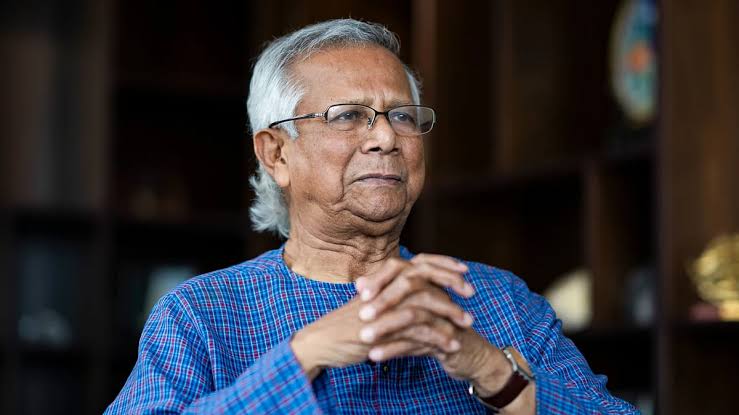Staff Correspondent
Published:2025-05-31 12:26:54 BdST
Interim govt must stay within mandate to maintain stability
The Secretariat remained tense for the last few days, with large sections of the bureaucracy effectively becoming paralysed. Earlier this week, activities at the National Board of Revenue (NBR) came to a halt due to protests by its officials and staff. Both the unrest at the Secretariat and the earlier protests are not being dismissed as conspiracies—rather, they are viewed as consequences of government decisions.
The protests at the NBR erupted after the government, aiming to meet International Monetary Fund (IMF) loan conditions, moved forward with a controversial plan to split the agency. While this decision has now been suspended until 31 July, unrest lingers.
The Secretariat protests were triggered by a different government move—one that many see as avoidable. The sudden introduction of the Public Service (Amendment) Ordinance 2025 has caught many off guard. Critics ask, with the country already grappling with unrest, protests, and political uncertainty, was this the right moment for such a sweeping legal change? Especially when the Chief Adviser himself has described the national situation as akin to wartime—what purpose does inviting more trouble serve?
Following the mass uprising of 5 August, which brought students and citizens to the streets, an interim government was formed under the leadership of Dr Muhammad Yunus. Its primary mandate, as widely understood, was to restore order, initiate key reforms, and prepare for national elections in the shortest possible time.
The public’s aspiration was clear: a more equitable Bangladesh with safeguards against any future slide into authoritarianism. This required meaningful but focused structural reforms—primarily of the state, the constitution, and the electoral system—and justice for the killings during the July unrest.
But above all, people expected swift elections, through which a representative government could take over and carry forward deeper reforms with broad legitimacy.
The interim government has repeatedly stated its three core goals: ensuring justice for the July massacre, initiating fundamental state reforms, and holding a free, fair, and credible national election. Most political parties shared the expectation that these tasks would be carried out within a limited timeframe and that elections would follow promptly.
Instead, the government has launched numerous reform commissions, some of which critics now describe as unnecessary or excessively time-consuming. While the reports from these committees are still under discussion, some observers argue that time and resources have been wasted on issues that were not immediately essential.
From this perspective, two specific areas of reform—electoral reform and constitutional amendment—would have sufficed to lay the groundwork for credible elections. However, the interim government has also entered more sensitive terrain, touching on issues such as gender reforms, media regulation, and civil service restructuring. These have stirred controversy, raising questions about whether such matters fall within the interim government's mandate.
Dr Yunus has said the reform commission reports will be reviewed in consultation with political parties, and only those items that gain broad consensus will be included in a national charter ahead of elections. Depending on the level of agreement, elections may be held in either June or December 2025. This approach keeps the door open but adds uncertainty to the timeline.
The core duties of the interim government remain clear: to initiate justice for the July killings, propose a framework for essential reforms, and hold elections. Moving beyond this scope, especially into contentious policy areas, risks fuelling instability—and lacks a popular mandate.
The latest controversy centres around the Public Service (Amendment) Ordinance 2025, which was approved last week by the government’s advisory council and issued on Sunday. Civil servants and employees at the Secretariat have labelled it repressive and in conflict with constitutional rights, launching fresh protests under the banner of the Bangladesh Secretariat Officers-Employees Council.
The ordinance introduces clauses allowing employees to be dismissed more easily for acts deemed disloyal or disruptive to workplace discipline. Absence from duty without approval, inciting others to abstain from work, or obstructing others from performing their duties are all grounds for disciplinary action, including demotion or termination.
While opinions may differ on whether such legislation is justified, the immediate question is whether it was necessary at this point in time. With the country already on edge, why introduce a measure that predictably sparked backlash?
In recent weeks, Dr Yunus has held meetings with political parties and called for national unity, noting that the political vacuum created by the ban on the Awami League has contributed to the current volatility. But many ordinary citizens believe that internal missteps by certain segments of the interim government are also to blame for provoking unrest.
For instance, discussions about the proposed Rakhine Corridor, changes in university governance, and moves to ban plastic bags—all outside the scope of the interim government's immediate responsibilities—have led to new disputes and further muddied the waters.
If we examine the various protests and agitation campaigns since August, a pattern emerges: several were triggered not by opposition forces but by the interim government's own decisions or delays. This raises uncomfortable questions. Could some individuals within the interim administration be fuelling unrest—intentionally or otherwise—to create conditions that justify postponing elections?
This government, after all, came to power with clear public backing. But that support was premised on completing three key tasks. If it overreaches into policymaking and fails to maintain stability, it must be held accountable.
Dr Yunus, a seasoned figure with global stature, understands that political consensus is his government's most crucial source of strength. Any growing rift with political parties—particularly over the timing and conduct of elections—would weaken that foundation. In such a climate, it would be wise for the interim government to avoid taking decisions on sensitive issues that do not directly align with its core responsibilities.
Unauthorized use or reproduction of The Finance Today content for commercial purposes is strictly prohibited.


